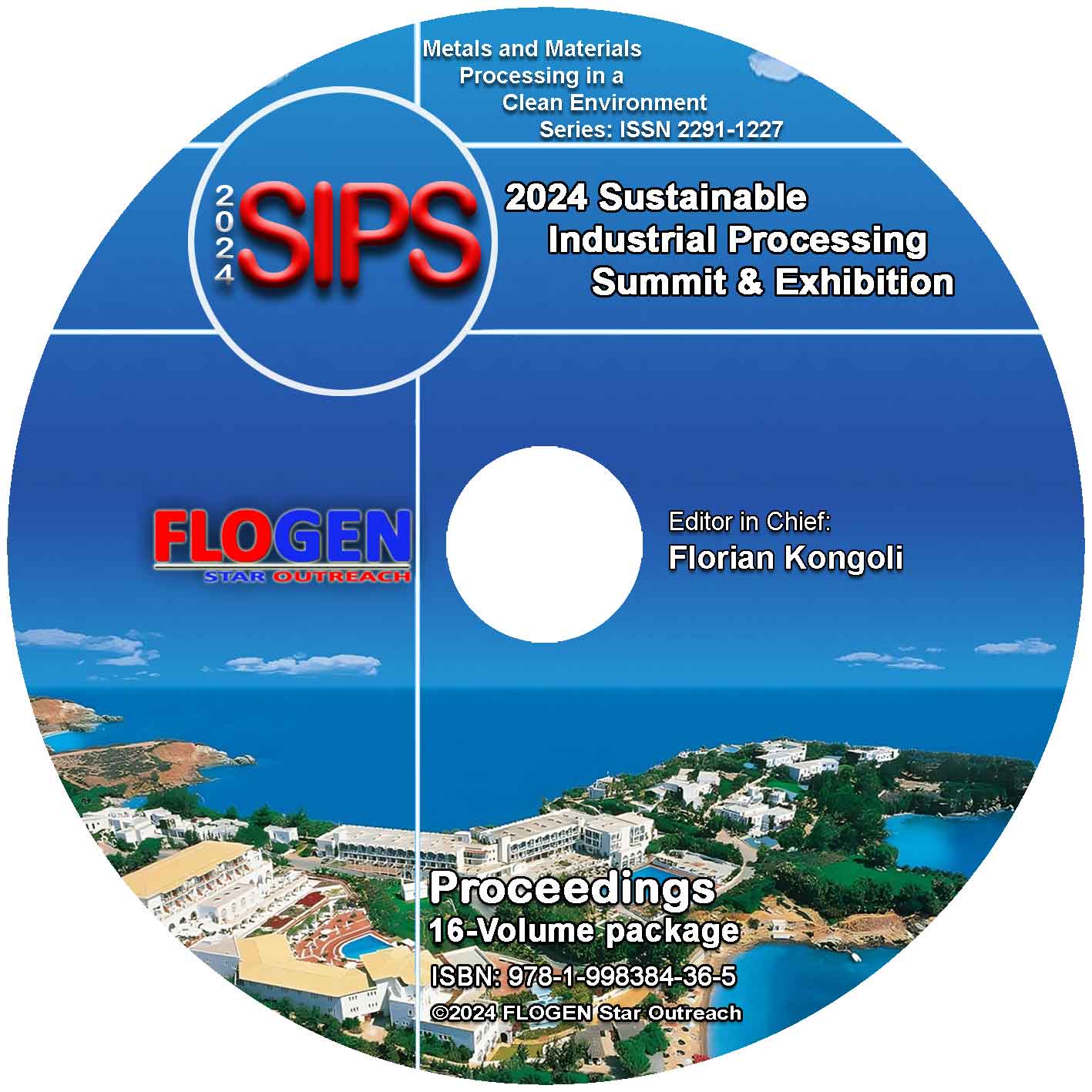2024 - Sustainable Industrial Processing Summit
SIPS 2024 Volume 15. Intl. Symp on Energy, Biochar, Cement, Carbon, Construction Materials, Agroforestry and Environmental
| Editors: | F. Kongoli, S.M. Atnaw, H. Dodds, M. Mauntz, T. Turna, H.W. Kua, M. Giorcelli, J. Antrekowitsch, G. Hanke, O. Adiguzel |
| Publisher: | Flogen Star OUTREACH |
| Publication Year: | 2024 |
| Pages: | 297 pages |
| ISBN: | 978-1-998384-32-7 (CD) |
| ISSN: | 2291-1227 (Metals and Materials Processing in a Clean Environment Series) |

CD shopping page
HIGH-TEMPERATURE SHS HEAT INSULATORS BASED ON PRE-ACTIVATED MINERAL RAW MATERIALS
Ayagoz Bakkara1;1THE INSTITUTE OF COMBUSTION PROBLEMS, Almaty, Kazakhstan;
Type of Paper: Regular
Id Paper: 447
Topic: 77
Abstract:
The quality and functional properties of any material, including composite systems, are determined by their phase composition and structural characteristics. One of the effective methods of influencing and regulating the level of activity of the system is mechanochemical treatment (MCT) of powder systems, which allows changing their degree of dispersion, defectiveness and forming highly active formations on the surface of particles [1]. The role of surface structures is extremely important in the creation of modified powder materials with a given set of properties.
Modification of mineral powder particles directly during the grinding process is one of the areas of mechanochemical processing of inorganic materials [2, 3]. Mechanochemical processing will allow purposefully changing the state and chemical activity of the mineral components of the charge mixtures.
The work involved studies on obtaining SHS heat insulators with pre-activated raw materials. Experimental work was carried out using natural mineral raw materials - grade "A" calcined diatomite crumb (fraction 0-0.2 mm). During preliminary mechanical activation, graphite was used as a modifier in the amount of 10 and 20%. Aluminum grade APV was used as a reducing agent. Sodium liquid glass served as a binder.
A positive effect of using various modifiers during the MCT of diatomite, activating the combustion process, was established. The selection of modifiers provides an increase in the strength of the synthesized SHS composites as a result of the formation of aluminate compounds in the synthesis products and a decrease in thermal conductivity to 0.157 W/m*K due to the formation of an ultraporous structure of the samples.